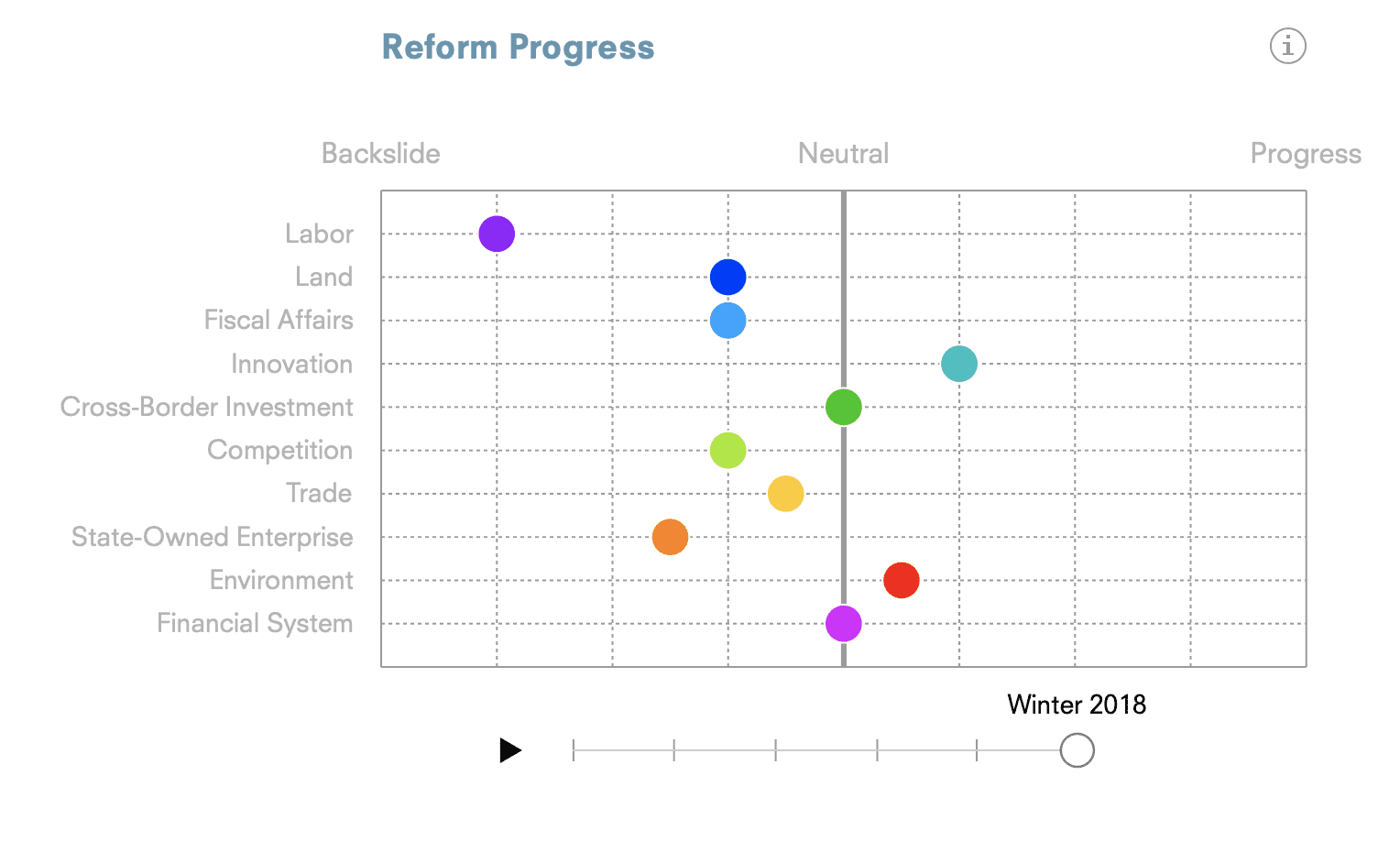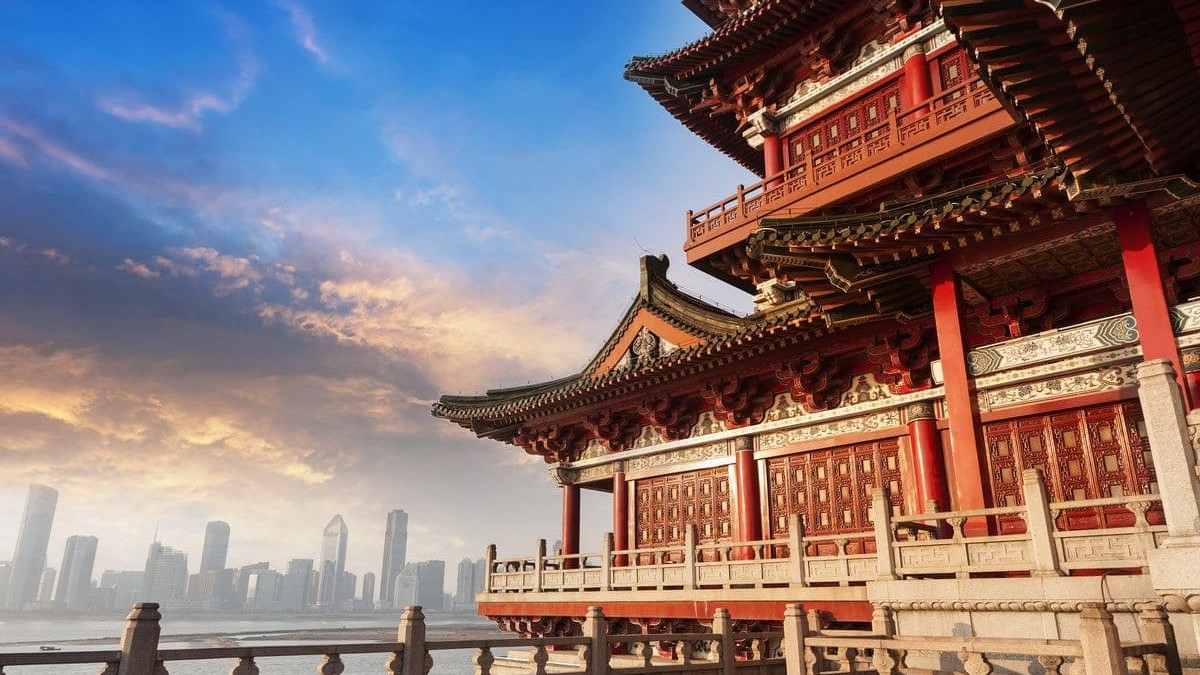This February brings about the Lunar Year of the Pig and also marks the 1-month countdown to the deadline for US-China trade negotiations. While the Trump administration has been very vocal about targets to balance the top-line terms of trade, there is also a strong push for market liberalization that is incumbent upon signing “the best deal.” Against this backdrop, the Asia Policy Institute has issued a timely review of China’s march towards market reform.
The Asia Policy Institute’s review, known as the “The China Dashboard,” offers a quarterly assessment of “China’s progress or regress on its own critical policy goals.” The Dashboard records data for the years following China’s Third Plenum plan, which was laid out with specified objectives in 2013. From their findings, the Institute observes that targeted market reform is not progressing in eight of the ten areas outlined. Two of the areas –Cross-Border Investment and the Financial System — appear to remain the same, while the areas of State Owned Enterprises (SOEs), Trade, Competition, Fiscal Affairs, Land, and Labor were reported to actually be moving backwards. That leaves only two areas that showed positive improvement: Environment and Innovation.
The Institute offers a trio of explanations for the less-than-rosy findings, namely:
– lack of conviction in leaders, reflecting a political apprehension to face potential risks of rapid economic reform;
– the slowing growth in China making reform more painful;
– lack of institutional competence to carry out the more sophisticated reform measures that an advancing economy requires.
Business activity surrounding State Owned Enterprises (SOEs) clearly illustrates the discrepancy between reality and targeted reforms. Throughout 2018, most government driven capacity cuts and credit controls affected private sector firms disproportionately, while SOEs enjoyed protection via better pricing, access to credit, and ability to acquire troubled private firms.
Not all of the report’s findings are discouraging, however. China did receive positive recognition for progress made in Innovation as a result of “increasing the share of higher-technology industries in the manufacturing sector,“ which is in line with the Made in China 2025 strategy. And with regards to the Environment, China’s air and water quality measures showed improvement. That’s a breath of (almost) fresh air for locals and foreigners in China, alike!
In closing, the report stresses the difficulty that Beijing faces in completing the various structural reforms, but also optimistically pines that the “sagging economic growth and the gloomy consequence of rebuffing the U.S. calls for change” may become drivers of “the case for China’s economic reformers.” How much progress can be made remains to be seen, however, and the March 1st deadline on trade talks will be a strong first indicator.
To read the full China Dashboard, click here.
Sean Doherty is a Colorado native and graduate of Metropolitan State University, living and working in Hong Kong, Shanghai, and Nanjing, China. Sean represents the Denver South Economic Development Partnership as the Greater China Exchange Coordinator, focused on fostering the exchange of ideas, strategies, and talent between China and the metro-Denver area. In 2016, Sean was selected as a Jiangsu Province Youth Friendship Ambassador. He can be reached at KairosHappens@gmail.com
China Services:
- Product sourcing (from R&D through production, QC, and shipment)
- Factory audits
- China trip coordination and support
- Consulting on the China market and APAC region



